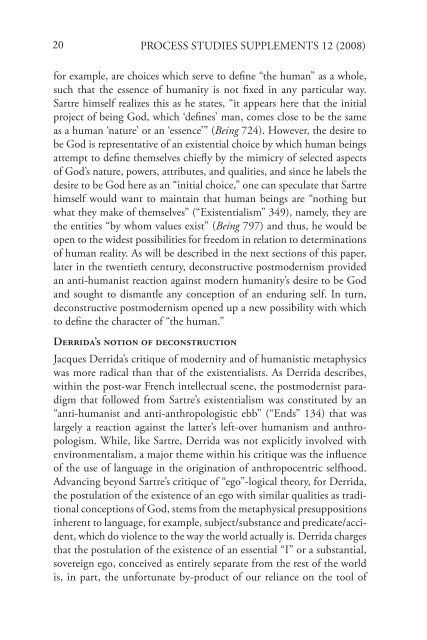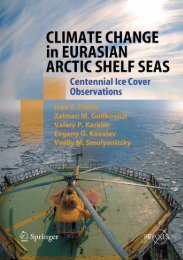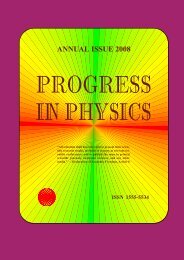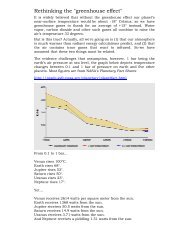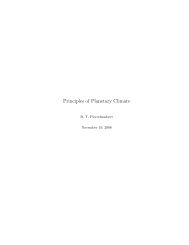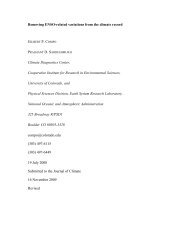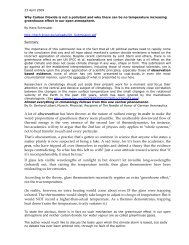Process Studies Supplement Overcoming Anthropocentric ... - Here
Process Studies Supplement Overcoming Anthropocentric ... - Here
Process Studies Supplement Overcoming Anthropocentric ... - Here
You also want an ePaper? Increase the reach of your titles
YUMPU automatically turns print PDFs into web optimized ePapers that Google loves.
20<br />
PROCESS STUDIES SUPPLEMENTS 12 (2008)<br />
for example, are choices which serve to define “the human” as a whole,<br />
such that the essence of humanity is not fixed in any particular way.<br />
Sartre himself realizes this as he states, “it appears here that the initial<br />
project of being God, which ‘defines’ man, comes close to be the same<br />
as a human ‘nature’ or an ‘essence’” (Being 724). However, the desire to<br />
be God is representative of an existential choice by which human beings<br />
attempt to define themselves chiefly by the mimicry of selected aspects<br />
of God’s nature, powers, attributes, and qualities, and since he labels the<br />
desire to be God here as an “initial choice,” one can speculate that Sartre<br />
himself would want to maintain that human beings are “nothing but<br />
what they make of themselves” (“Existentialism” 349), namely, they are<br />
the entities “by whom values exist” (Being 797) and thus, he would be<br />
open to the widest possibilities for freedom in relation to determinations<br />
of human reality. As will be described in the next sections of this paper,<br />
later in the twentieth century, deconstructive postmodernism provided<br />
an anti-humanist reaction against modern humanity’s desire to be God<br />
and sought to dismantle any conception of an enduring self. In turn,<br />
deconstructive postmodernism opened up a new possibility with which<br />
to define the character of “the human.”<br />
Derrida’s notion of deconstruction<br />
Jacques Derrida’s critique of modernity and of humanistic metaphysics<br />
was more radical than that of the existentialists. As Derrida describes,<br />
within the post-war French intellectual scene, the postmodernist paradigm<br />
that followed from Sartre’s existentialism was constituted by an<br />
“anti-humanist and anti-anthropologistic ebb” (“Ends” 134) that was<br />
largely a reaction against the latter’s left-over humanism and anthropologism.<br />
While, like Sartre, Derrida was not explicitly involved with<br />
environmentalism, a major theme within his critique was the influence<br />
of the use of language in the origination of anthropocentric selfhood.<br />
Advancing beyond Sartre’s critique of “ego”-logical theory, for Derrida,<br />
the postulation of the existence of an ego with similar qualities as traditional<br />
conceptions of God, stems from the metaphysical presuppositions<br />
inherent to language, for example, subject/substance and predicate/accident,<br />
which do violence to the way the world actually is. Derrida charges<br />
that the postulation of the existence of an essential “I” or a substantial,<br />
sovereign ego, conceived as entirely separate from the rest of the world<br />
is, in part, the unfortunate by-product of our reliance on the tool of


